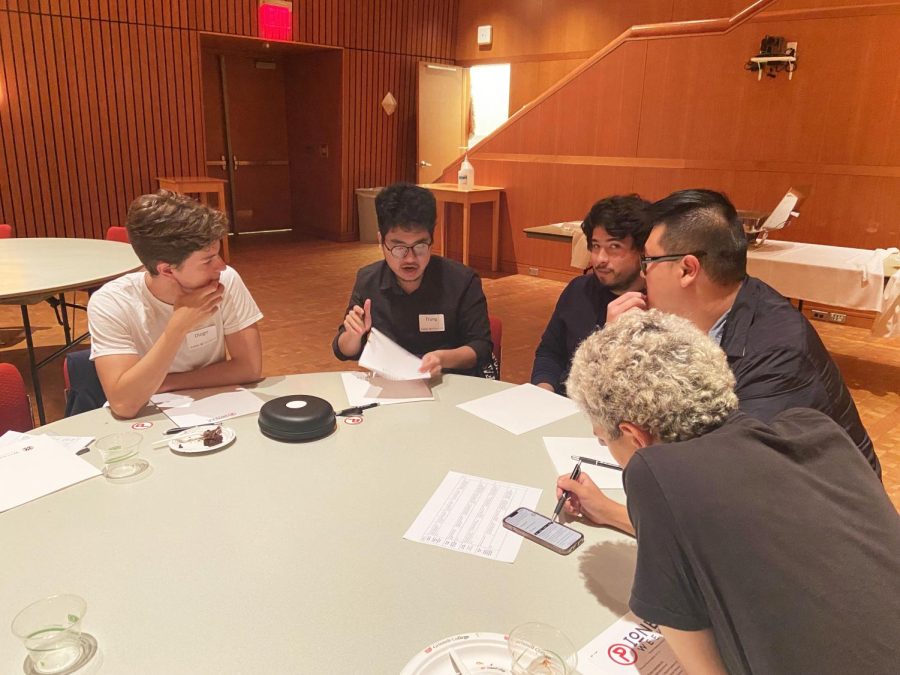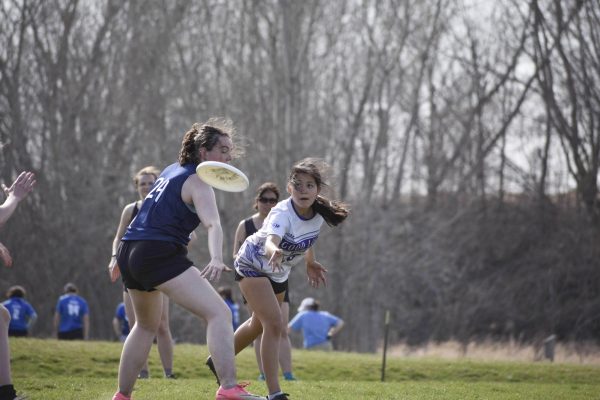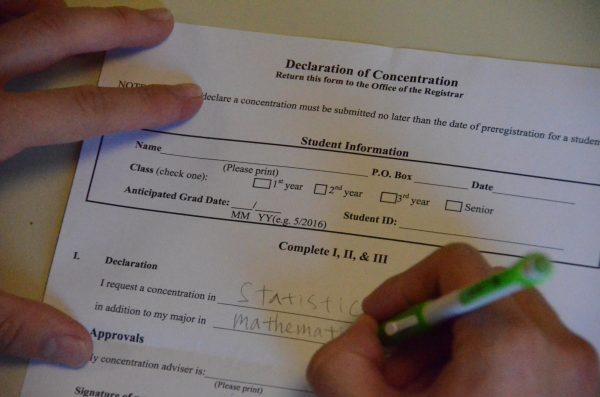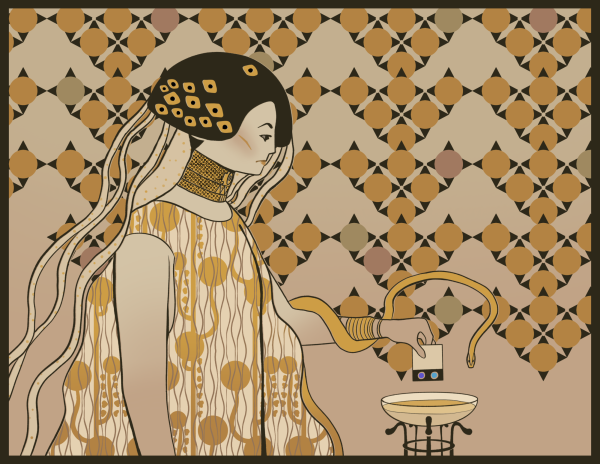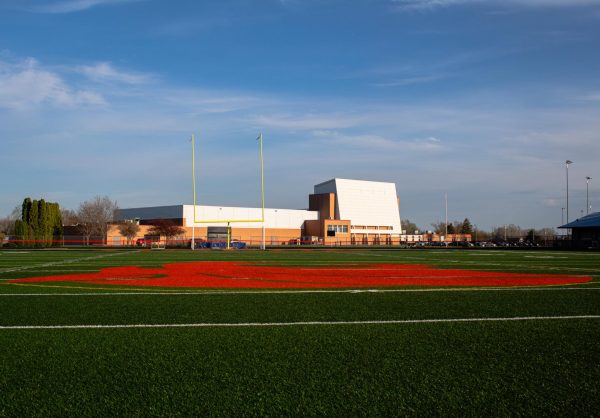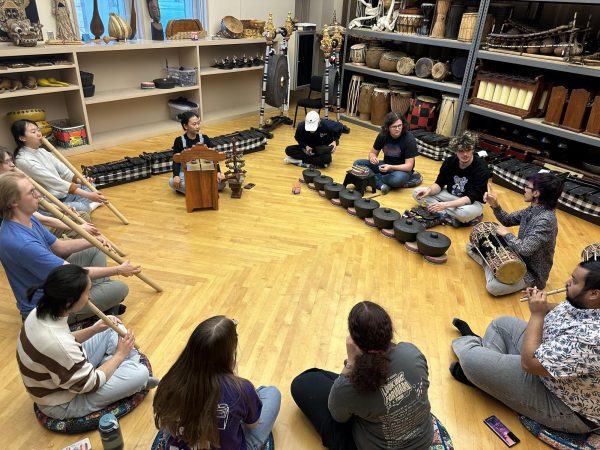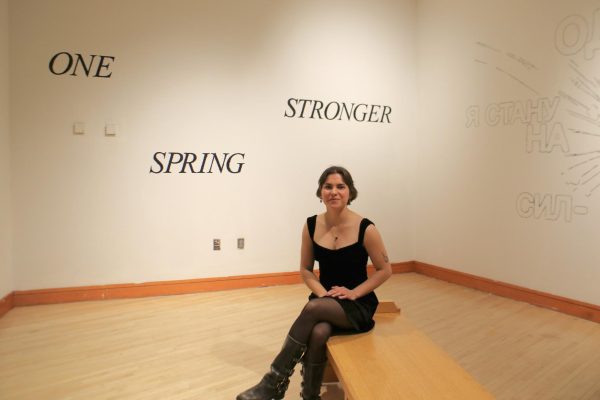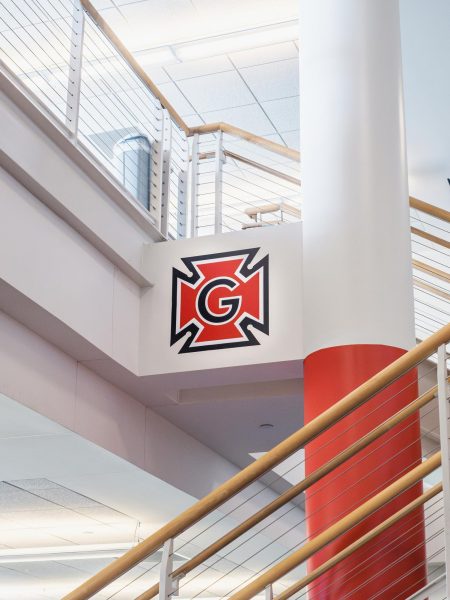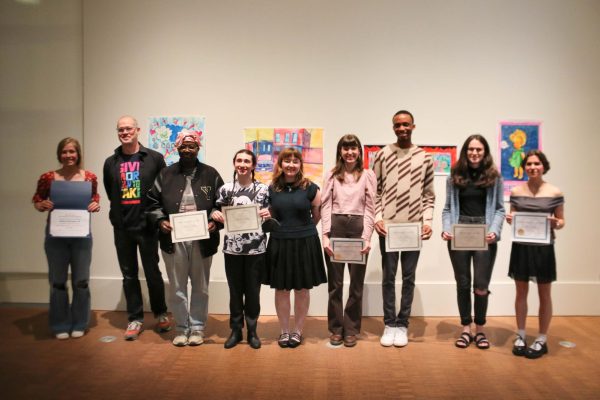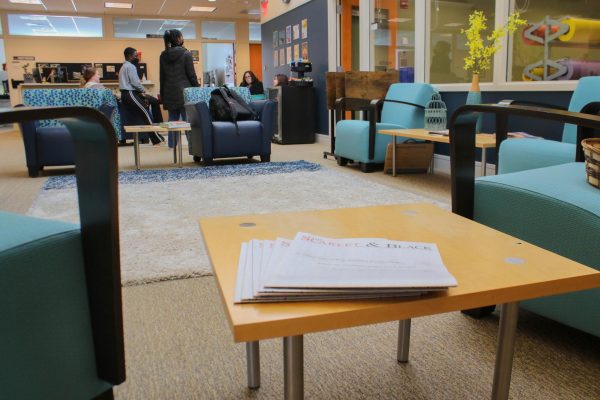Students win thousands for project proposals in Pioneer Weekend
Members of the “Spaced” team discuss their proposal. They finished 1st and each won $500.
October 3, 2022
The Joe Rosenfield Center was once again transformed into a project incubator as students worked late into the night identifying problems, brainstorming solutions and refining their deliveries during the Pioneer Weekend, an annual three-day innovation and pitch competition organized by the Wilson Center for Leadership and Innovation.
The annual Pioneer Weekend offers students the chance to win thousands of dollars and “stretch their entrepreneurial muscles,” according to Kerty Levy, one of this year’s judges. Levy is the managing director of Techstars Iowa, a startup accelerator program that offers mentorship and resources to its portfolio of companies.
The judge’s panel at this year’s event, which began on Friday, Sept. 23, also featured Alexander McLean and Jana Grimes. McLean is a lawyer and activist who founded Justice Defenders, a nonprofit organization that provides legal training to prisoners and prison staff in Gambia, Kenya and Uganda, and was the 2020 recipient of the Grinnell College Innovator for Social Justice Prize (Grinnell Prize). Grimes is the vice president of human resources at Grinnell College.
As part of the competition, students were supported by a group of alumni and local mentors who provided feedback and advice during the planning stage of the weekend. This year, Steve Elkes `83, Barb Baker, Terri Brady `79 and Leigh Kunkel `09 served as mentors.
Students prototyped and shared digital and analog solutions to problems they identified in the community or world at large — often highlighting the social impact that their projects would have on users and the surrounding community.
The six groups sought to address a diversity of problems ranging from the frustrations of trying to find summer storage spaces in Grinnell to building a safe and economical alternative to ethanol stoves in Brazil.
After a keynote address from Elkes on Friday evening, participants began brainstorming and pitching ideas to each other before narrowing down their projects and splitting into formal teams.
From 8 a.m. to 11 p.m. on Saturday, the teams refined their plans, built out prototypes and bounced ideas off their advisors during a series of mentor sessions.
On Sunday, each group had 10 minutes to pitch their prototypes, business plans and the estimated impact of their projects to the
judges, who asked questions about legal considerations, profitability and employment structuring.
The judges assessed each product’s design, innovative qualities and the degree to which it responded to the chosen problem. Each team was scored on their business plan and presentation quality. Teams also received a “social innovation” bonus if the product advanced a societal good.
After a period of deliberation, the judges announced the 2022 slate of winners.
“The Demolition Room” came in third place and each student received $150. Operating on the premise that Grinnell has a dearth of substance-free entertainment beyond campus, Evaan Ahmed `23, Katie Babb `26, Timur Kasimov `25 and Paata Kaloiani `25 pitched their project: a “demolition room” where individuals could smash and destroy furniture and trinkets that might otherwise be discarded, for stress relief and entertainment.
Nameera Muhammad Dawood `23, Nhật-Hồng Doan `24, Sneha Lohani `23, Elias Lawler `23 and Ganga Prakash `25 received the second place award and $300 each for their “Open Town” proposal. The proposed project would help close pandemic-induced achievement gaps in reading and math skills in Grinnell’s public schools, and it would provide both educational assistance and mentorship opportunities with the college.
The first place winners, receiving $500 each, Diego
Rodrigues `25, Vinicius Ono Sant`anna `24, David Dai `23, Enzo Pereira da Cunha `26 and Trung Le `25 proposed “Spaced.” “Spaced” is an app that connects students in need of summer storage with town residents that have extra room. In their pitch, the group highlighted how this “decentralized” model would make summer storage more affordable for students, profitable for individuals with extra space and beneficial for students and residents in Grinnell.
After the awards ceremony, Dai said the team was “honored and humbled” to receive the first-place award and that they enjoyed working alongside so many talented teams over the course of the weekend.
“We’re excited and encouraged to put this into practice,” said Ono Sant’anna, who worked on the “Spaced” pitch. “We’re definitely not stopping here.”
In his concluding remarks, Wilson Center Director and mathematics professor Jeff Blanchard said that while only three teams received monetary awards, all participants would derive long-term benefit from their hard work over the course of the weekend in their classes, careers and other endeavors.




























































